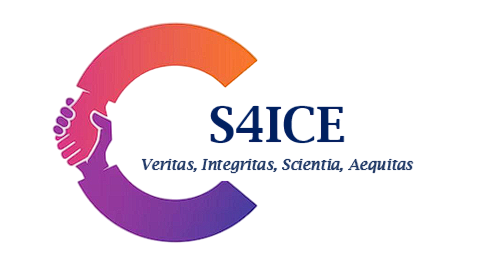Download the article here : Navigating_the_“Technocolonialism”_Era
Special Note of The Author
This policy brief is a call for vigilance, not a final verdict. It flags dynamics we describe as a new Technocolonialism that risks exclusion, social injustice, and future socio-economic and cultural imbalance. The claims are hypothesis-driven and policy-oriented. They must be tested and refined through independent, transparent, and replicable research using robust methods, open datasets, and comparative designs. Therefore, I invite constructive critiques from scholars, practitioners, regulators, platform operators, workers, and civil society. Disagreement should drive more precise definitions, more substantial evidence, and more proportional remedies where claims are incomplete. The goal is to achieve inclusive, responsible practices and sustainable growth. Such debates are precisely what the Society for Inclusive and Collaborative Entrepreneurship is designed to address.
Dr. Jacques Yana Mbena, Associate Professor of Management Sciences,
Speaker of the Board, Society for Inclusive and Collaborative Entrepreneurship (S4ICE) gGmbH.
Introduction
The global digital economy is increasingly marked by asymmetries that resemble historical patterns of colonialism and neocolonialism. Instead of territorial control, technology giants now exert dominance through ownership of platforms, data infrastructures, and standards. Following the works of Couldry and Mejias (2019) on how data is colonizing human life and appropriating it for capitalist purposes, Madianou (2019) on “Technocolonialism” in humanitarian, and Durst et al. (2025) on inclusive and responsible entrepreneurship in a turbulent era, we presume a new era of “Technocolonialism” that allows its redefinition as: a system in which control over data, compute power, artificial intelligence, and platform ecosystems enables dominant firms and states to extract value and secure structural economic advantages, assert political and social dominance, and construct exclusive arrangements that perpetuate dependency, thereby excluding and disadvantaging poorer countries.
- Channel of “Technocolonialism”
“Technocolonialism” is believed to utilize multiple channels for its diffusion. A non-exhaustive list can be found below:
- Data extraction. Apps, platforms, and operating systems collect vast amounts of personal and behavioral data with little return on value to the source countries (Couldry & Mejias, 2019).
- Platform lock-in. App stores and digital marketplaces impose high fees and opaque rules, as seen in the European Commission’s actions under the Digital Markets Act against Apple and Meta (European Commission, 2024).
- Advertising and attention capture. A handful of firms (Google, Meta, ByteDance, Amazon, Alibaba) dominate global ad markets, siphoning revenues away from local media (GroupM, 2023).
- Cloud and AI concentration. Advanced AI models and cloud infrastructures are capital-intensive and primarily controlled by a few U.S. and Chinese companies (Stanford HAI, 2024).
- Social media algorithms and extremism. Algorithmic amplification on platforms like TikTok, X (formerly Twitter), and Facebook promotes sensationalist or, in some aspect, exclusive or extremist content, shaping political discourse and manipulating public perception. This has been linked to rising polarization and weakening of democratic institutions, particularly in fragile contexts in the Global South (Kirkpatrick & Lawrie, 2024).
- Data privacy gaps. In many countries of the Global South, weak regulatory frameworks leave citizens vulnerable to invasive surveillance, unregulated cross-border data transfers, and the exploitative monetization of personal information (OECD, 2022).
- Hidden digital labor. AI systems rely on poorly paid, high-risk work such as content moderation and data labeling in Kenya and the Philippines (Perrigo, 2023).
- Environmental externalities. Short hardware lifecycles and the dumping of e-waste disproportionately burden countries in the Global South (UNITAR & ITU, 2024).
- Modus operandi of the new “Technocolonialism”
- Enrichment funnels. Revenue models (ad-tech auctions, app-store commissions, data brokerage, and per-API pricing for essential AI services) channel local value into concentrated corporate treasuries abroad, while imposing switching costs and non-portable reputations that keep users, creators, and SMEs locked in. These funnels are reinforced by proprietary standards and default integrations that deter open alternatives (UNCTAD, 2024; OECD, 2022).
- Winner‑take‑all dynamics. Network effects, economies of scale in computer and data, and preferential distribution (pre-installs, default settings) push markets toward monopoly/duopoly outcomes. Once dominant, platforms set take rates, shape discoverability, and tilt incentives toward engagement-maximizing (often polarizing) content, marginalizing local competitors and media (Stanford HAI, 2024; European Commission, 2024).
- Political discourse influence & control. Recommender systems and moderation policies, primarily designed and tuned outside affected countries, determine the visibility of political narratives, normalize extremist framings, and enable perception management. In weakly regulated environments, opaque downranking, state–platform MOUs or coordinated inauthentic behavior can steer public debate without transparency or due process (Kirkpatrick & Lawrie, 2024; OECD, 2022).
- Case Studies
- Free Basics in India. In 2016, India banned Facebook’s Free Basics zero-rating service, citing concerns about net neutrality and informational sovereignty (TRAI, 2016).
- Economic power & benefit. Global platforms monetize safer, more engaging AI products while externalizing psychosocial risks and maintaining thin labor margins in supplier countries; most value capture (IP, profits) accrues abroad. E.g.: Kenyan content moderators. Workers contracted to filter toxic material for AI training faced trauma and poor conditions, earning less than $2/hour (Perrigo, 2023).
- TikTok and health misinformation. Studies show that TikTok amplifies misleading health content, thereby exacerbating risks in areas where health literacy is low (Kirkpatrick & Lawrie, 2024).
- Algorithmic extremism in politics. Social media recommendation systems in Africa, Latin America, Europe, and the US have been documented to elevate divisive content, influencing elections and fueling disinformation campaigns (Rowe, 2023).
- AI compute dependence. The cost of training frontier AI models has risen exponentially, effectively excluding most countries from participation (Stanford HAI, 2025).
One conclusion that can be drawn from the above cases, “Technocolonialism” patterns of today are characterized by the concentration of intangible capital (models, data, patents) and platform rents in the Global North. At the same time, hazards and precarity are concentrated in the Global South, yet the South remains indispensable in the AI supply chain.
- Channels of Exclusion
Following the above observations, it can be presumed that “Technocolonialism” produces exclusion via:
- Extraction value, through profits and data flow offshore.
- Policy dependence, as national choices are constrained by gatekeeper terms and IP regimes.
- Epistemic marginalization, with underrepresentation of local languages in AI and data resources (Adelani et al., 2021).
- Labor exploitation, over hidden, precarious digital workforces.
- Environmental displacement, as the Global South is a dumping ground for e-waste.
- Manipulation of perception, algorithmic systems advance extremist agendas, distort civic discourse, and glorify exclusive and unfair social behavior.
- Data Vulnerability, this is due to the lack of robust privacy frameworks, which leaves citizens exposed to unchecked exploitation.
- Policy Recommendations
To counter “Technocolonialism”, policymakers and regional alliances should prioritize:
- Enforceable platform regulation: Implement competition rules (e.g., DMA-style anti-steering provisions), transparency in algorithms, and recommender system audits to reduce extremist amplification (European Commission, 2024).
- Data governance with trust: Adopt purpose-limited data protection and equitable cross-border data flow frameworks (OECD, 2022).
- Digital public goods: Invest in open-source digital identity, payments, and health infrastructures to avoid vendor lock-in (UNDP, 2023).
- Sovereign AI and cloud capacity: Fund regional cloud and GPU commons for local-language AI models (Stanford HAI, 2024).
- Fair work standards: Mandate protections for digital gig workers and content moderators (Rowe, 2023).
- Combat algorithmic harms: Require independent audits of recommender systems and obligations to support local-language content.
- Environmental protections: Enforce extended producer responsibility and right-to-repair laws to mitigate e-waste (UNITAR & ITU, 2024).
- Conclusion
The new era of “Technocolonialism” is not accidental; it is the structural outcome of concentrated digital infrastructures and business models. To advance a global, sustainable, inclusive, and responsible agenda and tackle a “Déjà-vu” dynamic phenomenon, which is believed to be nurturing even worse imbalances, policymakers shall develop rules that curb extractive practices, investments in sovereign digital capacity, and global coalitions, ensuring that technological progress does not reproduce colonial inequalities of all kinds in the digital era we are living in.
References
Adelani, D. I., et al. (2021). MasakhaNER: Named entity recognition for African languages. Transactions of the Association for Computational Linguistics, 9, 1116–1131.
Couldry, N., & Mejias, U. A. (2019). The costs of connection: How data is colonizing human life and appropriating it for capitalism. Stanford University Press.
Durst, S., Yana Mbena, J., & Viala, C. (2025). Inclusive and Responsible Entrepreneurship in a Turbulent Era. Cheltenham, UK: Edward Elgar Publishing.
European Commission. (2024, June 24). Digital Markets Act: Preliminary view that Apple breaches DMA anti-steering rules. [Press release: https://digital-markets-act.ec.europa.eu/commission-sends-preliminary-findings-apple-and-opens-additional-non-compliance-investigation-2024-06-24_en].
GroupM. (2023). This year, next year: Worldwide media spending forecast. WPP GroupM.
Madianou, M. (2019). Technocolonialism: digital innovation and data practices in the humanitarian response to the refugee crisis. Social Media and Society. https://doi.org/10.1177/2056305119863146
Perrigo, B. (2023, January 18). OpenAI used Kenyan workers on less than $2 per hour. TIME. [https://time.com/6247678/openai-chatgpt-kenya-workers/]
Kirkpatrick, C. E., & Lawrie, L.L., (2024). TikTok as a Source of Health Information and Misinformation for Young Women in the United States: Survey Study. JMIR Infodemiology. doi: 10.2196/54663
OECD. (2022). Fostering cross-border data flows with trust. Organisation for Economic Co-operation and Development [https://www.oecd.org/en/publications/fostering-cross-border-data-flows-with-trust_139b32ad-en.html].
Rowe, N. (2023, August 2). ‘It’s destroyed me completely’: Kenyan moderators decry toll of training AI models. The Guardian. [https://www.theguardian.com/technology/2023/aug/02/ai-chatbot-training-human-toll-content-moderator-meta-openai]
Stanford HAI. (2024). Artificial Intelligence Index Report 2024. Stanford University Human-Centered AI Institute. [https://hai.stanford.edu/ai-index/2024-ai-index-report]
Stanford HAI. (2025). Artificial Intelligence Index Report 2025. Stanford University Human-Centered AI Institute. [https://hai.stanford.edu/ai-index/2025-ai-index-report]
Telecom Regulatory Authority of India (TRAI). (2016). Prohibition of discriminatory tariffs for data services regulations. [ https://trai.gov.in/sites/default/files/2024-09/Regulation_08022016_0.pdf]
UNITAR & ITU. (2024). The global e-waste monitor 2024. United Nations Institute for Training and Research & International Telecommunication Union. [https://unitar.org/about/news-stories/press/global-e-waste-monitor-2024-electronic-waste-rising-five-times-faster-documented-e-waste-recycling]
UNDP. (2023). Digital public goods for the SDGs: Case studies. United Nations Development Programme. [https://www.undp.org/sites/g/files/zskgke326/files/2023-04/Digital%20Public%20Goods%20for%20the%20SDGs%20-%20Case%20Studies.pdf]




